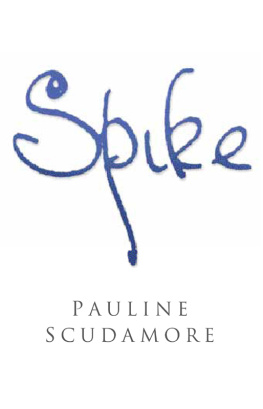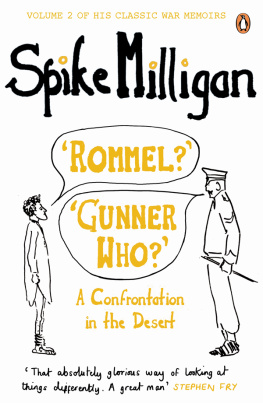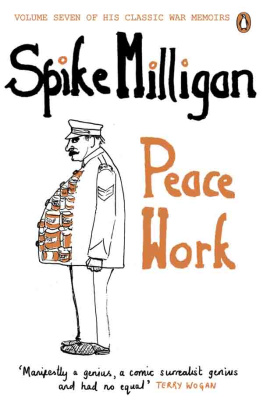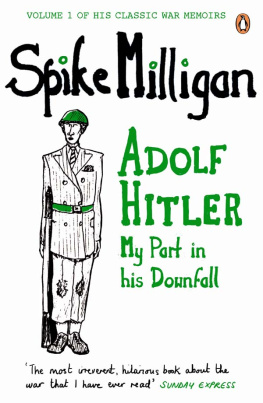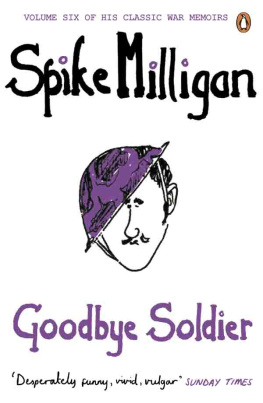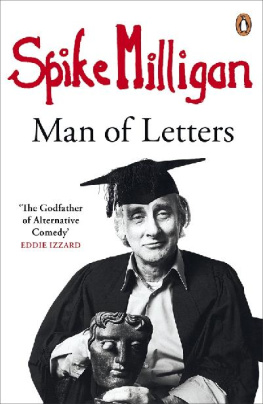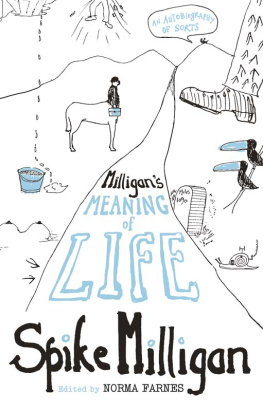For
Laura, Sean, Sil and Jane
First published in 1985 by Granada Publishing
This edition first published in 2003 by Sutton Publishing
The History Press
The Mill, Brimscombe Port
Stroud, Gloucestershire, GL5 2QG
www.thehistorypress.co.uk
This ebook edition first published in 2013
All rights reserved
Pauline Scudamore, 1985, 2003, 2013
The right of Pauline Scudamore to be identified as the Author of this work has been asserted in accordance with the Copyrights, Designs and Patents Act 1988.
This ebook is copyright material and must not be copied, reproduced, transferred, distributed, leased, licensed or publicly performed or used in any way except as specifically permitted in writing by the publishers, as allowed under the terms and conditions under which it was purchased or as strictly permitted by applicable copyright law. Any unauthorised distribution or use of this text may be a direct infringement of the authors and publishers rights, and those responsible may be liable in law accordingly.
EPUB ISBN 978 0 7524 9501 9
Original typesetting by The History Press
C uriosity more than anything else led me towards writing this book. To me, Spike Milligan was an enigma, an extraordinary and baffling man who sometimes appeared close up, making us fall about with laughter, and at other times seemed remote and isolated, at a great distance. After the curiosity to learn more about him came the determination to put down something of what I had learned, to consolidate, to extricate the fact from the fiction and to show something of the man behind the myth.
Biographical material has been readily available, and the advantage of an early biography has not been lost by any restrictions placed on the writer by the subject. Spike answered every question I put to him with the total candour of a man who sees no point in lying. He allowed me access to all his family, friends and acquaintances, and to his manuscripts, poems, diaries, letters and private papers. He refused to look at what I had written; on one occasion when I tried to show him something of a preliminary draft of this book he waved it away firmly, smiled and said Surprise me. I have been struck by the fact that after all the taped interviews I had with him over four years he never rescinded a single word, backpedalled, said Dont use that or wanted to read the subsequent typescripts.
Perhaps the fact that I was never a Goon fan may have helped rather than hindered this book. I have not been unmindful of what Milligan owes to the Goon Show, or what the development of British comedy owes to the Goon Show, or what the development of British comedy owes to Milligan. But the Goon period has received due recognition in this book and no more, for it was the non-Goon Milligan that first attracted me.
I needed to delve at length into areas of his extraordinary life that had not as yet been touched on. The hazards of writing a biography of Milligan are great, not because he was a difficult man (of course he was) but because his mind was so fertile, so absorbent and so totally preoccupied with whatever caught and fired his imagination at the moment that it would seem impossible to regulate and steer such an articulate man into conventional channels of orderly discussion. Yet Milligan was no fly-by-night quick talker. He was a man of intellect, capable of serious and conclusive thought. There is no lack of discipline when he is deeply interested or committed, and his observations are often both profound and devastatingly simple. Only his emotions betray him.
Because I came to know Spike well, it has not always been easy to detach myself from the uncritical admirers and remain objective, but my overriding ambition has been to be honest. I have not tried to gloss over all the imperfections that form part of this strange and wayward man, for Milligan was too important to be flattered or patronized. I believe that people with such acutely perceptive minds as his should be recognized and heeded.
More than anything in this book I am aware of omissions. Some of these are glaring. His work for television alone is deserving of a profound study, for a more sharply defined case of extremes would be hard to find. The richness and the poverty march together; surreal brilliance contrasts with ordinary old chestnuts. Milligan was a master of spontaneity and a victim of the rehearsal room. Overall, my conclusion was that attempting to encapsulate his rare gifts for the small screen is like trying to chase and bottle a rainbow.
He has failed to be taken seriously as a writer and not a small part of the blame must rest with him, for no one has denigrated his achievements with deadlier marksmanship than himself. The titles of his first few books have the tongue-in-cheek self-disparagement of a man who seems to have insulated himself against the humiliation and despair of rejection for to Milligan, rejection was tormenting and grievous. For him, it held nothing of the spur which has driven other writers forward. Milligan was bereft, as it were, of the means to harness this particular sort of adversity for his own eventual good.
Most people are unaware of his poetry. This is sad, for many of Milligans poems, true to no style save his own, have a curious, indelible capacity to touch the conscience of the reader. And when a conscience is touched, views can alter and an outlook can change.
It is probably my own experience with Spikes destructive and painful illness that has equipped me to write about him with, I hope, a degree of lucidity and insight, just as I believe that being a manic-depressive had, for him, been a challenge of such magnitude that merely to surmount the downs and override the ups he needed a physical and mental tenacity that can only have been arrived at with considerable courage. Although his achievements may have been to some extent a harnessing of the positive elements of this illness, we cannot assume that the results were achieved without pressures and pain, nor that these achievements were arrived at without penalty to the fragile, often agonizing relationships which Spike maintained with people he cared about. It is no exaggeration to say that he was a skin short; there are times when it seemed that he could be virtually skinless. Sometimes it seemed as if he were a shuddering carcass flayed raw by the agonies of daily living. A highly complex personality, he was nevertheless transparently honest and obviously possessed of considerable insight and some self-knowledge. I have heard him say with more anger than self-pity, I feel like a tortoise without its shell.
Learning about Spike has been a long, painful, and fascinating process, and it only struck me after two years of working on the book that perhaps he needed not one but rather a team of biographers, and then they would not of necessity have got it right. His wife, his family, his friends, his children; their help and good wishes have been most supportive and encouraging and my thanks go out to them.
Most of all, however, I thank Spike for his patience and tolerance, for his understanding and his kindness. I feel that I have learned a lot, and not only about my subject. I hope that I have done him justice and that there will be a glimpse of the real man who was almost totally dissimilar to the zany TV personality we have been bludgeoned into accepting.

